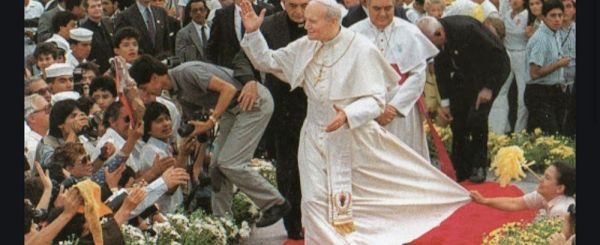2. It may not always be conscious and clear, but in the human heart there is a deep nostalgia for God. St. Ignatius of Antioch expressed this eloquently: “There is in me a living water that murmurs within me: 'Come to the Father'” (Ad Rom.7). “Lord, show me your glory”, Moses begged on the mountain (Ex 33:18) [...].
Bringing us the direct witness of the life of the Son of God, John’s Gospel points out the road to follow in order to know the Father. Calling upon the “Father” is the secret, the breath, the life of Jesus. Is he not the only Son, the first-born, the loved one towards whom everything is directed, present to the Father even before the world existed, sharing in his same glory? (cf. Jn 17:5). From the Father Jesus receives power over all things (cf. Jn 17:2), the message to be proclaimed (cf. Jn 12:49), the work to be accomplished (cf. Jn 14:31). The disciples themselves do not belong to him: it is the Father who has given them to him (cf. Jn 17:9), entrusting him with the task of keeping them from evil, so that none should be lost (cf. Jn 18:9).
[Pope John Paul II, Message for the 14th WYD]












